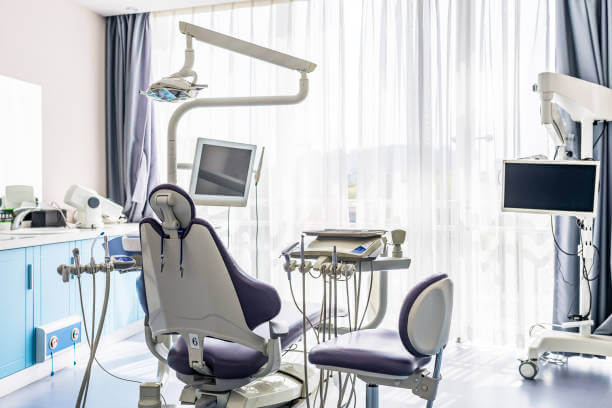How Dental Offices Are Getting Hacked Through Office Wi-Fi
The Overlooked Cyber Threat Putting Patient Data at Risk

Dental offices are increasingly becoming prime targets for cybercriminals — not just through phishing emails or malware links, but directly through their office Wi-Fi networks. With the widespread adoption of smart dental technology, cloud-based practice management systems, and digital imaging, clinics are improving efficiency and enhancing patient care. However, this digital transformation also creates new cybersecurity vulnerabilities that hackers are quick to exploit.
Many dental clinics unknowingly leave their networks open to intrusion. Weak passwords, outdated routers, and unsecured devices provide easy entry points for hackers looking to access sensitive patient data. This is where IT support for dental clinics becomes not just helpful but absolutely essential in keeping systems locked down and compliant with data protection regulations.
Why Hackers Target Dental Offices
You may think your dental clinic isn’t a likely target — but that’s exactly what makes it attractive. Dental offices store a large volume of sensitive information, including patient health histories, social security numbers, insurance details, and credit card information. To a hacker, this data is gold.
Unlike hospitals and larger healthcare organizations that invest heavily in cybersecurity, small to mid-sized dental practices often lack robust IT infrastructure. Hackers know this and take advantage of it.
Top reasons dental clinics are targeted:
-
❌ Lack of continuous network monitoring
-
🔐 Weak or outdated Wi-Fi security settings
-
🖨️ Unsecured connected devices (printers, cameras, VoIP phones)
-
🌐 Unrestricted guest or public Wi-Fi access
Even a single weak point — such as a network-connected printer with open access — can serve as an entry path into your entire system.
How Office Wi-Fi Becomes a Major Weak Spot
In many clinics, the same Wi-Fi network is used for everything — patient records, internal communications, guest Wi-Fi, and even device operations. That’s a big problem.
When a hacker gets access to a guest network with no restrictions or monitoring, they can often use that as a bridge into the core network. From there, it’s just a few steps to accessing sensitive patient records or launching ransomware attacks.
Risks of unsecured Wi-Fi in a dental practice:
-
📂 Data breaches exposing private patient information
-
💣 Ransomware attacks that shut down clinic operations
-
📡 Remote hijacking of smart devices
-
⚖️ HIPAA violations that can result in serious fines and legal issues
This is where dental IT support becomes critical. An expert IT provider ensures your Wi-Fi is encrypted, segmented (guest vs. internal), and monitored — drastically reducing the chances of unauthorized access.
How to Strengthen Wi-Fi Security in Your Dental Office
Fortunately, many Wi-Fi-based vulnerabilities can be addressed through some simple, consistent practices. The key is to make these part of your clinic’s routine — not a one-time fix.
Essential steps to secure your Wi-Fi network:
-
🔒 Use separate Wi-Fi networks for staff and guests
-
🔑 Set strong, unique passwords for each network
-
🔄 Regularly update router firmware and network hardware
-
🛑 Disable remote access features unless absolutely necessary
-
🧱 Install firewalls and endpoint protection software
-
📱 Routinely audit all connected devices to remove unused or vulnerable ones
When done right, these measures form the foundation of a larger cybersecurity strategy tailored to the needs of your practice. And with professional IT support for dental offices, you won’t need to worry about the technical side — it’s all managed for you.
The Real Cost of Ignoring Network Security
It’s easy to think cybersecurity is something only large organizations need to worry about. But for dental clinics, the consequences of inaction are severe and very real.
A single breach can have a domino effect — impacting not just patient safety but your entire business operation.
Consequences of a network breach in a dental clinic:
-
🤝 Loss of patient trust and loyalty
-
⚖️ Legal action and HIPAA fines
-
💸 Revenue loss from operational downtime
-
🧾 Long-term damage to your clinic’s reputation
Most dental practices that suffer cyberattacks assumed it wouldn’t happen to them. But hackers don’t discriminate based on practice size. Even one poorly secured router or outdated firewall can compromise everything.
Conclusion: Don’t Let Wi-Fi Be Your Weakest Link
Protecting your clinic’s Wi-Fi network isn’t a technical luxury — it’s a business necessity. In today’s digital landscape, you must treat cybersecurity with the same level of care as patient treatment.
Professional IT support ensures that your clinic’s systems, networks, and patient records are always protected against the latest threats. With services tailored specifically for dental offices, you get peace of mind and operational efficiency — all in one.
DNTLIT provides trusted dental IT solutions, including Wi-Fi protection, system monitoring, HIPAA compliance, and more. We manage your tech so you can focus on what matters most — your patients.
FAQs
1. Can a hacker really access patient records through Wi-Fi?
Yes. If your Wi-Fi isn’t properly secured, segmented, and encrypted, hackers can use it as a gateway to your internal systems.
2. Is guest Wi-Fi safe for dental offices?
It can be — but only when it’s isolated from your main network, has limited access permissions, and is monitored regularly.
3. How often should I update my router or firewall?
At least once every quarter. But the ideal setup includes automatic updates and real-time monitoring, which come standard with managed IT services.
4. Do I need IT support even for a small clinic?
Absolutely. Small clinics are often the easiest targets. Outsourced IT support for dental offices offers scalable, cost-effective protection without the need for in-house IT staff.




